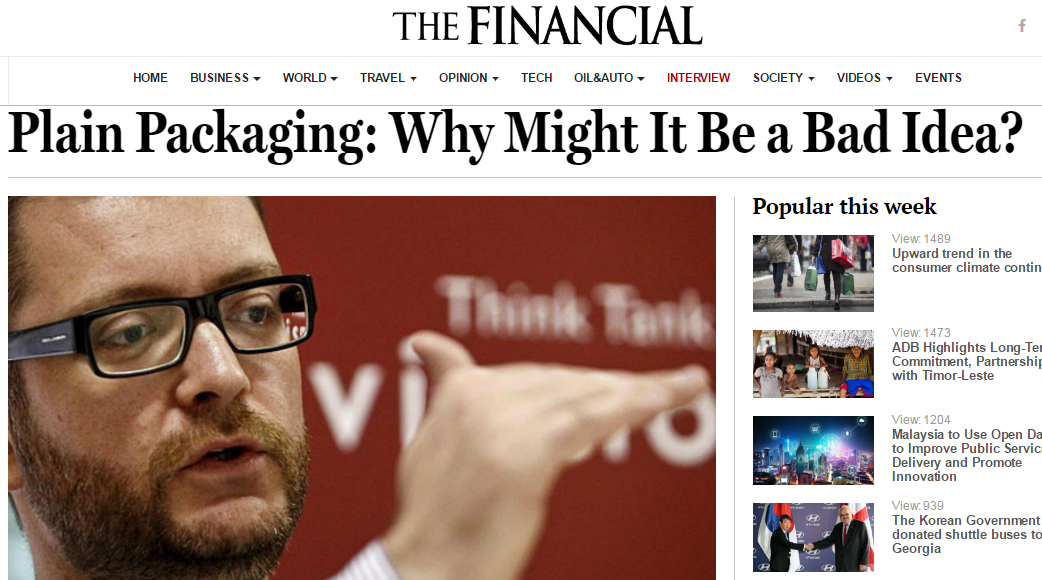* This is my column in BusinessWorld on June 04, 2018.
“To cease smoking
is the easiest thing I ever did, I ought to know because I’ve done it a
thousand times.” — Mark Twain
On May 29, 2018, I attended the “Health for Juan and
Juana” conference on universal health care (UHC) at the PICC, jointly sponsored
by the DoH, ADB, PHAP, MeTA, Havas, AC Health, others.
It was a big event with many participants and
high-powered speakers and facilitators from national and local governments,
multilaterals, NGOs, academe and private players.
Listening to the health officials of Davao, Makati,
Bataan, and South Cotabato, I got the impression that with the way they provide
health care to their constituents, it is possible to abolish the DoH and
realign its budget to LGUs.
The keynote speaker was Sen. JV Ejercito, Chairman of the
Senate Committee on Health and Demography and he talked about his UHC bill, the
public consultations, the financing including his proposal to further hike
tobacco tax to P90/pack. It is a far-out number compared with P30/pack in 2017
under Sin Tax law of 2012 (RA 10351), to become P35/pack in 2018, P37.50 in
2019, then P40/pack in 2022 under TRAIN law (RA 10963).
Since corruption in government remains high, higher tax
rates mean higher tax avoidance. Lots of cigarette smuggling occurred in
2015-2016 involving billions of pesos of avoided taxes. In February 2017 for
instance, the Bureau of Customs estimated that some P50B of foregone taxes in
2016 were due to smuggling, about P16B of it was from cigarette smuggling.
If the numbers are correct and if we divide P16B over
P29/pack excise tax in 2016, that was equivalent to 552 million packs of cheap
cigarettes. Cheap cigarettes encourage more smoking and, as a result, higher
tobacco taxes achieve an opposite result.
With higher tobacco tax this year because of TRAIN law,
cigarette smuggling has continued.
For instance, a BusinessWorld report on May 01, 2018 said
“DoF warns cigarette smuggling may be helping finance terrorism.”
DoF Secretary Sonny Dominguez was quoted, “Illegal money
can end up funding terrorist activities” while Customs Commissioner Caesar
Dulay said that “smuggled cigarettes are currently flooding the market.”
High taxation and explicit prohibitions are often two
sides of the same coin. One policy done by governments abroad is the
prohibition of displaying the tobacco companies’ names, logos, and brands via
plain packaging policy. So all cigarette packs by all players, old and new,
established or fly-by-night, will display similar designs and graphic warnings.
After implementing plain packaging policies since
December 2012, illegal tobacco consumption in Australia has increased from an
estimated 11.5% to 13.5% in 2012 to up to 15.0% in 2017 (source: KPMG, “Illicit
Tobacco in Australia, Full Year 2017 Report,” April 20, 2018).
This because many new players, including those engaged in
criminality and terrorism, have come in, produced cheap cigarettes since plain
packaging is much easier to copy, and attracted more buyers and smokers.
The United Kingdom also enacted the plain packaging
policy in May 2017 and after one year, (1) no significant decline in smoking
incidence happened, partly or largely because (2) cheap counterfeit plain packs
surfaced.
The counterfeits were found to have high tar, nicotine,
and carbon monoxide than those allowed in UK, and in some cases, are found to
contain heavy metals such as arsenic, cadmium, and lead, along with other toxic
contaminants: asbestos, mold, dust, dead flies, rat droppings — and even human
excrement. (Sources: The Times, “Illegal tobacco tainted by asbestos and rats,”
May 16, 2017; Evening Standard, “Sniffer dogs with GoPro bodycams help uncover
30,000 fake cigarettes in Soho crackdown,” May 24, 2017).
Meanwhile, the World Justice Project (WJP) produces an
annual study, the “Rule of Law Index” (RoLI) and score countries based on their
performance on 8 factors and 44 sub-factors. The RoLI 2017-2018 Report involves
more than 110,000 households as respondents and 3,000 expert surveyors in 113
countries and jurisdictions.
A summary is shown below, focused on Factor 6: Regulatory
Enforcement (Government regulations are effectively enforced, applied and
enforced without improper influence; Administrative proceedings are conducted
without unreasonable delay, etc.)
So if Australia and the UK with better rule of law
implementation have experienced high and rising incidence of illicit trade and
smuggling of cheap cigarettes, how much more for developing countries like the
Philippines?
If the Philippines will consider imposing higher tobacco
taxes like the P90/pack proposal by Sen. Ejercito, and/or if it is to consider
plain packaging policy, given its low rule of law culture and poor regulatory enforcement,
a doubling of current extent of illicit trade and smuggling can be expected.
Which means more fake and cheap cigarettes will come in,
and there will be more smoking and smokers, not less.
More government taxation and prohibitions create adverse
selection problems; the law of unintended consequences always kicks in as
nature abhors a vacuum.
Bienvenido S. Oplas, Jr. is President of Minimal
Government Thinkers, a member-institute of Economic Freedom Network (EFN) Asia.
---------------
See also:
BWorld 217, Dutertenomics, TRAIN and high inflation, June 02, 2018



























